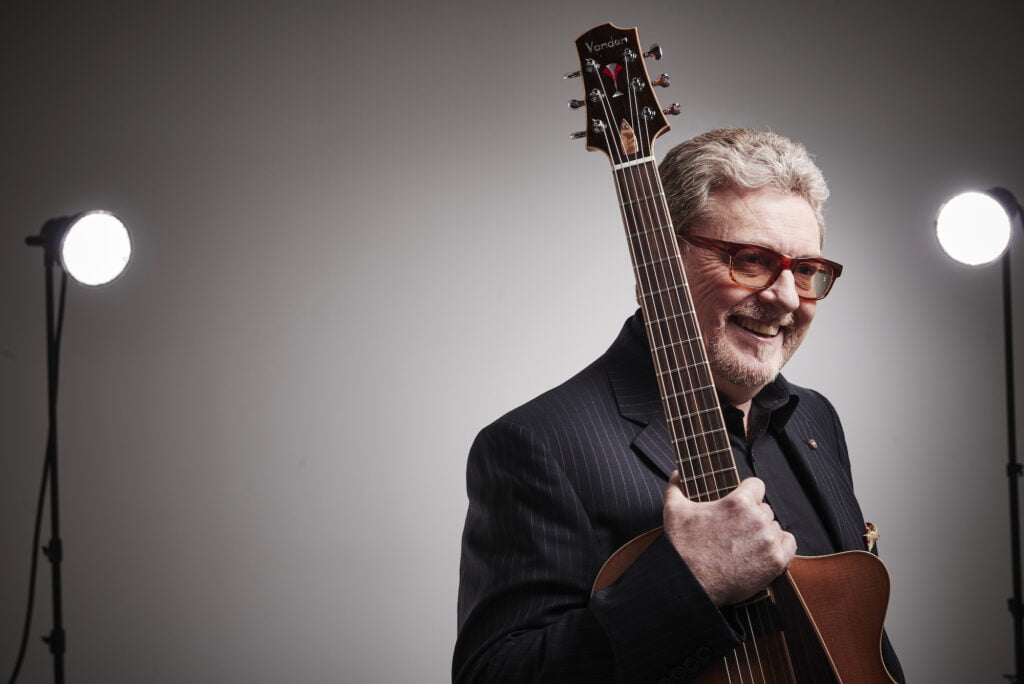TALK about preparation. Martin Taylor can look ahead to this weekend’s concerts with the Scottish National Jazz Orchestra and say, honestly, that he’s been waiting all his life to play the part of Django Reinhardt.
The Belgian guitarist, the first European to be regarded on a par with America’s jazz masters, was the first musician Taylor can remember hearing and he’s pretty sure his father would have been playing Reinhardt’s records when Taylor was in his mother’s womb.
“My dad listened to other music,” says Taylor during a break from going over the arrangements SNJO director Tommy Smith has commissioned for the concerts. “He liked Count Basie, Ella Fitzgerald and Fats Waller but I always remember him and his pals, sitting in the living-room, playing dad’s Django 78s and then getting their guitars out and having a jam session.”
 It wouldn’t have been long after these early memories that Taylor himself was able to play along. He was eight when he played the first gig he was paid for, eleven when he started playing in bands regularly and 15 when he left school to become a full-time professional guitarist, racking up an early experience with one of his dad’s aforementioned favourites, Count Basie, shortly afterwards.
It wouldn’t have been long after these early memories that Taylor himself was able to play along. He was eight when he played the first gig he was paid for, eleven when he started playing in bands regularly and 15 when he left school to become a full-time professional guitarist, racking up an early experience with one of his dad’s aforementioned favourites, Count Basie, shortly afterwards.
In his early 20 Taylor began an eleven year association with Reinhardt’s partner in the Quintette du Hot Club de France, violinist Stephane Grappelli, although through the years of international touring he was never made to feel as if he was filling the great guitarist’s shoes.
“We didn’t play a lot of the Hot Club repertoire with Stephane,” he says. “We’d play Minor Swing and maybe Nuages occasionally but Stephane’s real interest was in the Great American Songbook and making it swing. He’d played with a lot of other guitarists by the time I joined him, so there was no pressure to play like Django.  Stephane wasn’t one for giving directions anyway. The biggest pressure was when he liked something I played and he’d tell me to play it again – ‘to amuse the tourists’ as he always referred to the audience – and I had to try and remember what it was I’d played.” Still, playing with Grappelli and hearing his stories of the Hot Club’s heyday took Taylor that bit closer to the guitarist whose playing, as he says, “spoke to me.”
Stephane wasn’t one for giving directions anyway. The biggest pressure was when he liked something I played and he’d tell me to play it again – ‘to amuse the tourists’ as he always referred to the audience – and I had to try and remember what it was I’d played.” Still, playing with Grappelli and hearing his stories of the Hot Club’s heyday took Taylor that bit closer to the guitarist whose playing, as he says, “spoke to me.”
“I hear guitarists now who have come to Django’s music after playing heavy rock and they have unbelievable technical ability but Django wasn’t about chops,” says Taylor. “He could play fast but generally his improvisations were melodic variations, more like composing on the spot or telling a story where one phrase followed logically on from another. The thing you have to remember about Django is that his biggest influence was Louis Armstrong and he took his phrasing from Louis’ trumpet style and singing. He often played guitar as if he was singing.”
For the SNJO concerts Taylor will be playing electric guitar as Reinhardt did on his own big band recordings, a transition that Taylor feels liberated Reinhardt.
“The Hot Club quintet with Stephane was a string band and they could all play acoustically because their instruments had a similar dynamic range,” he says. “Even if you added a clarinet it would be in roughly the same range but when you introduce trumpets and trombones, an acoustic guitar would struggle to compete. When Django made his big band records he’d been to New York and played with Duke Ellington and Dizzy Gillespie. He was actually getting into more of a bebop style and he cranked up the volume a bit – had his Bob Dylan moment twenty years before Bob had his – and found a different voice, a louder voice.”
Taylor isn’t planning to blare, just soar over the top of the orchestra when need be. The instrumentation of the orchestra in this particular guise has been chosen to recreate the atmosphere of 1940s Paris. To the reduced orchestral line-up of three trumpets, three trombones, five reeds, bass and drums (there’s no piano) have been added rhythm guitar, accordion and violin.
 “We wanted to add the colour that accordion and violin bring,” says Taylor, who worked closely with Tommy Smith in selecting the pieces to be played, drawing from dozens of recordings.
“We wanted to add the colour that accordion and violin bring,” says Taylor, who worked closely with Tommy Smith in selecting the pieces to be played, drawing from dozens of recordings.
“It’s quite unusual to have Django’s music celebrated by a big band. I’m sure it’s been done before but people tend to focus on the Hot Club or small group era when it comes to tributes,” he says. “I’m really looking forward to playing the concerts but also to hearing the new arrangements of tunes like Manoir de mes rêves and Swing 42. And dare I say it, because it’s seventeen musicians onstage, it’s the sort of idea I’d like to tour further afield.”
Preview by Rob Adams for the Glasgow Herald – September 2017


